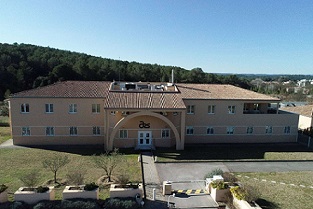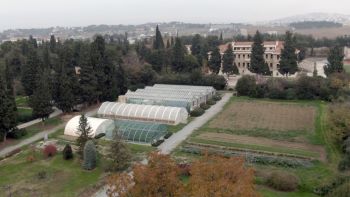France and Greece
European Biological Control Laboratory


European Biological Control Laboratory, France EBCL, American Farm School, Thessaloniki, Greece
About
As the only USDA ARS-operated laboratory outside the United States, the EBCL develops biological control technologies which can be used to suppress invading weeds and arthropod pests of Eurasian origin. EBCL researchers do this by searching for natural enemies (insects, mites, ticks, and pathogens) in their native habitat, determining their identity, testing their host specificity and potential impact in laboratory and field experiments, and shipping promising organisms to the U.S. for further testing as biological control agents. EBCL collaborates with scientists in countries around the world to explore in regions of origin of the target weeds and insects.
Research
EBCL’s research includes biological control of insects, biological control of weeds, and integrated management of disease vectors of important crops (for example the vectors of Pierce’s disease of grapes and olive quick decline syndrome) and humans and livestock (vector examples include ticks, mosquitoes, and sand flies).
Location
The main lab is located on the AGROPOLIS Campus International de Montferrier-Baillarguet which is near several French and Australian agricultural research centers, including CBGP, CIRAD, and CSIRO. EBCL’s specialized research facilities in France include a molecular genetics laboratory, a microbiology laboratory, and a chemical ecology laboratory. Two quarantine laboratories enable EBCL staff to work with exotic organisms: a P-2 laboratory which is certified for arthropods and a P-3 laboratory which is certified for plant pathogens.
The EBCL also includes a laboratory in Thessaloniki, Greece located on the campus of the American Farm School. This lab is focused on vectors of human and livestock diseases.
